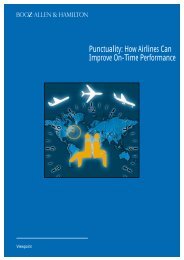The sentence
The sentence
The sentence
Create successful ePaper yourself
Turn your PDF publications into a flip-book with our unique Google optimized e-Paper software.
- present form: He must be right. He must know the answer. (now)<br />
- perfect or past form: He must have been right. He must have known the answer.<br />
(then)<br />
B. Uses of modals (etc> to express ability and inability<br />
Expressing present and past ability: ‘ can’ and ‘be able to’<br />
1. We can use can (or sometimes am/is/are able to) to describe natural or learned ability:<br />
I can (I am able to) run 1500 metres in 5 minutes. (natural ability)<br />
I can’t (I am not able to/I am unable to) drive. (learned ability)<br />
2. We can use could, couldn’t or was/were (not) able to to describe ‘general ability in the<br />
past’:<br />
3. We use was/were able to or managed to (Not *could*) to describe the successful<br />
completion of a specific action:<br />
We were able to (we managed to) get ticket for the match yesterday. (Not *could*)<br />
4. However, we can use couldn’t to describe a specific action not successfully completed:<br />
We couldn’t get tickets for the match yesterday. Or:<br />
We weren’t able to/didn’t manage to get tickets for the match yesterday.<br />
‘Can/could’ with verbs of perception: ‘I can see’<br />
1. Verbs of perception are verbs like see, hear, smell, etc.<br />
2. When we are describing something that is happening now, we do not use the progressive<br />
with these verbs: I see a bird in that tree. (Not *I’m seeing*)<br />
3. We often use can + verb in place of the simple present with verbs of perception:<br />
I can see a bird in that tree. (= I see) Can you see it? (= Do you see)<br />
We often use could + verb in place of the simple past with verbs of perception:<br />
I looked up, but couldn’t see anything. (= didn’t see)<br />
Ability in tenses other than the present and the past<br />
Can and could are not ‘complete verbs’, so we use be able to and sometimes manage to if,<br />
for example, we want to express the future or the present:<br />
I’ll be able to pass my driving test after I have had a few lessons. Not *I can/I will can*<br />
‘Can/could’ in place of ‘is often’ and ‘was often’<br />
Instead of: It’s often cold in January. We can say: It can be cold in January.<br />
Instead of: He was often naughty when he was a boy.<br />
We can say: He could be naughty when he was a boy.<br />
C. Uses of modals (etc.) to express permission and prohibition<br />
Asking for permission with ‘can’, ‘could’, ‘may’ and ‘might’<br />
We use can, could, may and might to ask for permission, depending on the situation.<br />
1. Can is the commonest and most informal: Can I borrow your umbrella (please)?<br />
2. Could is more polite than can: Could I borrow your umbrella (please)?<br />
69




